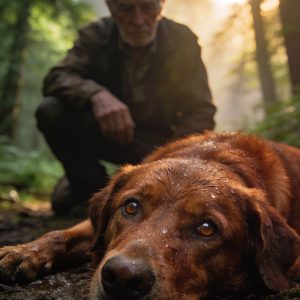In the waning days of 2024, a young black bear cub was discovered in a dire state in El Dorado County, California. Orphaned and suffering from severe dehydration, anemia, and a debilitating skin infection, the cub’s condition was so grave that he barely resembled his species.

Weighing a mere 20 pounds, the cub was taken in by Gold Country Wildlife Rescue (GCWR) in Auburn. The rescue team, led by marketing and outreach manager Chelsea Engberg, was deeply moved by the cub’s plight. “It was heartbreaking to see a bear cub in such terrible condition,” Engberg shared.
Under the meticulous care of GCWR, the cub began a slow but steady recovery. Initial signs of improvement included the growth of fine fur on his previously bare face. As weeks turned into months, the cub’s health continued to improve, and he started exhibiting natural bear behaviors, such as playing with enrichment items like a kiddie pool and a firehose hammock.
By February 2025, the transformation was nothing short of miraculous. The once-hairless and fearful cub had become a robust and active bear, much to the delight of his caregivers. “We are always amazed by the wild animals in our care, and this bear cub is one of the most amazing recoveries we have seen,” Engberg remarked.
In May, GCWR announced that the California Department of Fish and Wildlife had decided the cub would not return to the wild but would instead be relocated to a sanctuary where he could live safely and comfortably. The bear, now unrecognizable from his former self, continues to thrive, embodying the resilience of wildlife and the profound impact of dedicated rehabilitation efforts.





